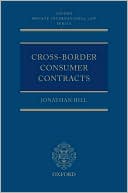Category Books
- Fiction Books & Literature
- Graphic Novels
- Horror
- Mystery & Crime
- Poetry
- Romance Books
- Science Fiction & Fantasy
- Thrillers
- Westerns
- Ages 0-2
- Ages 3-5
- Ages 6-8
- Ages 9-12
- Teens
- Children's Books
- African Americans
- Antiques & Collectibles
- Art, Architecture & Photography
- Bibles & Bible Studies
- Biography
- Business Books
- Christianity
- Computer Books & Technology Books
- Cookbooks, Food & Wine
- Crafts & Hobbies Books
- Education & Teaching
- Engineering
- Entertainment
- Foreign Languages
- Game Books
- Gay & Lesbian
- Health Books, Diet & Fitness Books
- History
- Home & Garden
- Humor Books
- Judaism & Judaica
- Law
- Medical Books
- New Age & Spirituality
- Nonfiction
- Parenting & Family
- Pets
- Philosophy
- Political Books & Current Events Books
- Psychology & Psychotherapy
- Reference
- Religion Books
- Science & Nature
- Self Improvement
- Sex & Relationships
- Social Sciences
- Sports & Adventure
- Study Guides & Test Prep
- Travel
- True Crime
- Weddings
- Women's Studies
Cross-Border Consumer Contracts »

Authors: Jonathan Hill
ISBN-13: 9780199276547, ISBN-10: 0199276544
Format: Hardcover
Publisher: Oxford University Press, USA
Date Published: April 2009
Edition: (Non-applicable)
Author Biography: Jonathan Hill
Jonathan Hill studied law at the Universities of Birmingham (LLB) and Cambridge (LLM). He was appointed to a lectureship at the University of Bristol in 1984. He was promoted to a readership in 1991 and to a personal chair in 1996. He has written extensively in the field of private international law and was a member of the editorial team for Dicey and Morris, The Conflict of Laws (13 Ed, 2000).
Book Synopsis
Until relatively recently, almost all contracts were domestic: both the consumer and the supplier were from the same country and the situation involved no substantial foreign elements. Technological changes (in terms of international travel, means of communication and information technology) have meant that it is a more frequent occurrence for consumer contracts to involve a cross-border dimension.
This book explores the legal regimes which seek to deal with disputes which arise out of such cross-border consumer contracts. In terms of private international law, English law traditionally treated consumer contracts no differently from commercial contracts. However, at European level, jurisdictional and choice of law issues arising out of certain consumer contracts are subject to specific rules. The first part of the book focuses on these European developments and seeks to explain why the private litigation model for the resolution of disputes arising out of cross-border consumer contracts has failed to deal adequately with the problems generated by such contracts. Subsequent to these failures, alternative mechanisms for resolving contractual disputes have a particular significance in the consumer context. The second part of the book focuses on an evaluation of these alternative dispute resolution mechanisms, including online dispute resolution.
Table of Contents
Subjects
 Business & Commercial Law
Business & Commercial Law  Business Contract Law
Business Contract LawBusiness Books
 Business & Commercial Law
Business & Commercial Law  Consumer Law
Consumer LawBusiness Books
 Business & Commercial Law
Business & Commercial Law  Contract Law
Contract LawBusiness Books
 International Business
International Business  Europe - International Business
Europe - International BusinessLaw
 Business, Commercial & Financial Law
Business, Commercial & Financial Law  Business Contract Law
Business Contract LawLaw
 Business, Commercial & Financial Law
Business, Commercial & Financial Law  Consumer Law
Consumer LawLaw
 Business, Commercial & Financial Law
Business, Commercial & Financial Law  Contract Law
Contract LawNonfiction
 Law
Law  Business, Commercial & Financial Law
Business, Commercial & Financial LawNonfiction
 All Nonfiction
All Nonfiction  Business, Commercial & Financial Law
Business, Commercial & Financial LawPolitical Books & Current Events Books
 Law
Law  Business, Commercial & Financial Law
Business, Commercial & Financial Law
